October 13th, 2023 → 4:07 pm @ rldonovan
Karen’s Killer Fixin’s #Humorous #Cozy: I DON’T KNOW WHY THEY KILLED HIM, A Donna Leigh Mystery Book 3 by Robin Leemann Donovan #Recipe ~ Linguine with Tuna, Olives, & Capers
January 12th, 2021 → 5:13 pm @ rldonovan
@bookologylive
elia: WHAT IS THE MOST DIFFICULT PART OF YOUR ARTISTIC PROCESS?
Robin Leemann Donovan: Editing, when I don’t have a clear picture of whether or not the editor is on board with my plans for the plot. For example, my books are mostly about comedy and secondarily about murder mysteries. One of my editors got very angry because he said instead of having my characters brought to the police station for questioning and released, I missed an opportunity of having them brought to trail and put in jail – thus missing the entire point of everything I was trying to do. I asked my publisher to remove that editor from my book – and they did.
Romelia: DOES YOUR FAMILY SUPPORT YOUR CAREER AS A WRITER?
Robin Leemann Donovan: Absolutely, although most of them don’t really know the best way to support an author (as most people don’t, I.e. tell them you love it – but also write a review, buy copies as gifts, etc.), but the encouragement and praise are priceless.
Romelia: IF YOU HAD TO DO SOMETHING DIFFERENTLY AS A CHILD OR TEENAGER TO BECOME A BETTER WRITER AS AN ADULT, WHAT WOULD YOU DO?
Robin Leemann Donovan: I would have started writing novels much earlier. I didn’t start until I was in my 50’s.
Romelia: HOW LONG ON AVERAGE DOES IT TAKE YOU TO WRITE A BOOK?
Robin Leemann Donovan: That’s a tough one. The first one took three months – which was a shock to me – it all just came tumbling out. I wrote the second one in between editing and proofing and promoting the first book. So there were a whole lot of interruptions along the way. The same is true of the third book – I was working on editing, proofing the second and marketing both the first and second. So after the first, it was about a year to a year and a half due to stopping and starting.
Romelia: DO YOU BELIEVE IN WRITER’S BLOCK?
Robin Leemann Donovan: Not really. I think if you’re blocked maybe you’re not writing what you should be. I tried writing a fictionalized version of a very painful event in my life – I was more blocked than unblocked. When the lawyers decided it was risky to publish something so incendiary I went on to write comedic murder mysteries – and I have never looked back. the writing is more fun that I could ever have imagined, it’s actually hard for me to stop myself once I get started. And I only start when I’m in the mood – which is almost always.
Romelia: AT WHAT POINT DO YOU THINK SOMEONE SHOULD CALL THEMSELVES A WRITER?
Robin Leemann Donovan: After you have written the entire piece, edited, proofed and published it (either independently or through a variety of publishing options) and have started to market it.
Romelia: WHAT DIFFERENCE DO YOU SEE BETWEEN A WRITER AND AN AUTHOR?
Robin Leemann Donovan: For many years I was a writer. I blogged my way through the internet on a variety of topics. Technically, I authored those pieces, but I didn’t view myself as an author until I had a novel that was selling.
Romelia: HOW DO YOU PROCESS AND DEAL WITH NEGATIVE BOOK REVIEWS?
Robin Leemann Donovan: After years of getting reviews both good and bad, it becomes easy to spot the majority of bad interviews which are clearly from people who: Hate your genre or are just plain trolls. There are a few who just don’t appreciate your particular style – and that’s fair – although I personally don’t write reviews when the style I’m reading doesn’t appeal to me.
We are told to ignore bad reviews, so I do. It does annoy me that they lower my rating on amazon – but everyone gets them. I actually had one reviewer say mine was the worst book they’d ever read – I laughed out loud at that one – clearly they haven’t read much. Another troll declared they couldn’t stomach reading past page 60 – and then they complained about a scene on page 200 – there’s definitely a shady trend here.
Romelia: WHAT IS THE MOST DIFFICULT PART OF YOUR WRITING PROCESS?
Robin Leemann Donovan: Not being able to write whenever I feel like it. When the mood strikes me I just like to sit down and start writing, sometimes for eight hours with very short breaks. But I also don’t force myself when I’m not in the mood – I did that once and found that I wrote very little and none of it was good.
Romelia: HOW LONG HAVE YOU BEEN WRITING OR WHEN DID YOU START?
Robin Leemann Donovan: I have been writing since I could first pick up a pencil, but I didn’t start writing cozy mysteries until I was in my early 50’s. And while it’s a whole lot of work, I just wish I could have started at least a decade earlier – because it has been so very rewarding.
Romelia: WHAT ADVICE WOULD YOU GIVE TO A WRITER WORKING ON THEIR FIRST BOOK?
Robin Leemann Donovan: Before you even start writing, manage your expectations. Even Malcom Gladwell said in his blog “we don’t make money on our books, we hope they help us gain recognition so we can get paid speaking gigs.” And even that only happens to a small percentage of authors. That said, I wouldn’t trade it for the world.
Romelia: WHAT, TO YOU, ARE THE MOST IMPORTANT ELEMENTS OF GOOD WRITING?
Robin Leemann Donovan: A basic knowledge of good grammar so that when you break the rules it’s deliberate. I think you also have to be a proven talented storyteller, so that you can capture the imagination of your reader.
Romelia: WHAT COMES FIRST FOR YOU – THE PLOT OR THE CHARACTERS – AND WHY?
Robin Leemann Donovan: I create them simultaneously. As I start down a road for the plot, I determine whether or not any of my existing characters will work in the scenario – and if none do, I create a new character or occasionally change that segment of the plot for one that fits my existing characters.
Romelia: HOW DO YOU DEVELOP YOUR PLOT AND CHARACTERS?
Robin Leemann Donovan: I’ll give you an example. In my first book, I had my basic cast of characters. One thing that I felt would be critical was for my protagonist, Donna Leigh, to be humble, to be able to laugh at herself and to be human enough to have clearly visible flaws. That’s when I invented her alter ego, Clovis Cordoba Seville. Clovis is an extreme narcissist who never fails to find massive fault with Donna. And even though there might be more than a hint of truth in some of her assaults on Donna, Clovis’ level of drama makes everything she says and does laughable – at least I hope it does. And it helps to elicit the characteristics I want from Donna Leigh.
Romelia: WHEN DID YOU FIRST CALL YOURSELF A WRITER?
Robin Leemann Donovan: At a very early age my parents labeled me “the writer” and my sister “the artist.” I have always been “the Writer”. – even if only through letters to friends and family – I always got great reviews on them – I could always make them laugh – and that has never changed. 15 years ago my business partner urged me to create a blog on menopause. Menologues was a trailblazer in giving women practical information on menopause that was not dry as dust. After publishing Menologues for several months, it was republished on Vibrant Nation and on all top. It also won some awards. That made the “writer” moniker feel more real. And that’s why my series features a menopausal protagonist.
At one point, A reacquainted friend from high school wrote and told me she shared menologues with a friend who was starting on menopause and feeling terrified. she swore my blog saved her life. That alone made all of my hard work completely worthwhile and so rewarding.
Romelia: HOW DO YOU USE SOCIAL MEDIA AS AN AUTHOR?
Robin Leemann Donovan: I use Facebook to connect with other authors and to find invaluable interview opportunities. Once these are public, I post them on Facebook(my home page, my author page and my series page, linked in, and my website (rldonovan.com). the connections through Facebook are more prolific than the sales.
Romelia: WHAT’S YOUR FAVORITE AND LEAST FAVORITE PART OF PUBLISHING?
Robin Leemann Donovan: My favorite part is when you first hold that final proofing copy in your hand. My least favorite part is waiting to find out if your newly assigned editor “gets you” and “gets your work.” When that doesn’t happen it’s a nightmare. I once had an editor tell me that I couldn’t reference the soft drink as coke, I had to call it coca cola.
Another one told me I couldn’t use “shit” when my character spills coffee on her blouse on her way into a meeting, “people really say, damn,” he corrected. Not in my world they don’t! My dialogue is extremely precise to the specific characters, messing with that messes with my whole brand. Hmmm, does that make me a diva?
Romelia: WHAT WOULD YOU SAY TO AN AUTHOR WHO WANTED TO DESIGN THEIR OWN COVER?
Robin Leemann Donovan: In my experience very few people are gifted as authors and graphic artists alike. It’s not impossible, but its so rare. And by that I mean, if you design an awesome cover for your novel, maybe it’s not as good a read as you think. All of my covers were designed by designers in my ad agency. When they would ask my opinion, I always reminded them that they were the designers – I always used their recommendations for the best possible design impact. Do what you do best – don’t try to be best at everything, it’s just not realistic.
Romelia: HOW MANY BOOKS HAVE YOU WRITTEN AND WHICH IS YOUR FAVORITE?
Robin Leemann Donovan: The Donna Leigh mytery series has three books: is it still murder even if she was a bitch, I didn’t kill her but that may have been shortsighted and I don’t know why they killed him he wasn’t really that annoying. All three are my babies and all three have elements that I love the most. The first was the easiest to write, the next two were more of a challenge because I didn’t want to make them formulaic. In the first book it was all about advertising in Omaha. In the second book, my protagonist has to make a trip back to Connecticut where she used to live and the third book takes place in an advertising venue, but is really all about the wine industry. They all feature pairing food and wine at some point.
Romelia: WHAT PART OF THE BOOK DID YOU HAVE THE HARDEST TIME WRITING?
Robin Leemann Donovan: My third book was the hardest to write. I forced myself to write the first half while the second book was being edited. I was afraid if I didn’t have it at least half finished I would never get around to writing a third book. That first half sat for almost 2 years. When I finally got back to it I hated it. Too lazy to scrap all that work I spent some time trying to come up with a way to make it work with minor editing.
After a few weeks, I came up with an ending I loved and a mechanism to make the first half work with that ending. Once those changes were made, I absolutely fell in love with my third book. I would not have thought that possible. I’ve never written the ending before finishing the whole book before – if I planned it, it would not have worked out as well.
Romelia: WHAT PART OF THE BOOK WAS THE MOST FUN TO WRITE?
Robin Leemann Donovan: All of the funny parts – and I hope there are a lot. I laughed my way through all three books – and when I reread them now, I still laugh out loud!
Romelia: WHICH OF THE CHARACTERS DO YOU RELATE TO THE MOST AND WHY?
Robin Leemann Donovan: My protagonist, Donna Leigh. She is roughly based on my life. Like me, she is a menopausal owner of an ad agency in Omaha, Ne. They say write about what you know and there’s nothing I know about more than myself.
Romelia: IF YOU’RE PLANNING A SEQUEL. CAN YOU SHARE A TINY BIT ABOUT YOUR PLANS FOR IT?
Robin Leemann Donovan: I have been thinking about a 4th book in the series. I already have a working title and I plan to have one of the staff members in donna leigh’s ad agency get murdered – which would keep it close to home and spawn even more drama. I would love to write a 4th book because the writing of this series is so much fun for me – but I do realize that I owe it to my other three books to spend some serious time in marketing them.
Romelia: TELL US SOMETHING FUNNY ABOUT YOUR ADULT LIFE.
Robin Leemann Donovan: My husband and I went to a colleague’s wedding. I was wearing my favorite LBD (little black dress) but still wasn’t feeling as fabulous as I’d hoped. We left the party on the early side and I was grumbling the whole time. To make matters worse, I had broken a fingernail. When we got home, my husband went to his office om the first level and I went up to the master suite on the third level. I started to get undressed and then I grabbed a brand new bottle of nail glue to fix my break. Opening the glue was a huge pain and when I finally wrenched it open it had very little glue – great another problem. I did my best with the fingernail and then moved on to other ablutions. After a few minutes I moved to go back into the bedroom – and found I was glued tight to the bathroom floor. Apparently, the glue bottle had broken, dumping the whole bottle onto my bathroom tiles and my foot. Using my little gray cells I started to search for something sharp – to help me peel my foot off the tile – there was nothing within reach. I then tried to pull my foot free – and realized immediately that I would lose the whole bottom of the foot. Not wanting to end up on you tube, I hesitated to call my husband – but after 20 minutes I didn’t care anymore. I yelled for about 20 minutes to no avail. Finally, he decided to come upstairs to change his clothing. To his credit, he took one look at me and ran to the garage to grab the goo gone, freeing my foot before collapsing into hysterical laughter. I’d like to say that this was an unusual event in my life – but I’d be lying.
Romelia: DESCRIBE YOURSELF IN A FEW SENTENCES. TELL US SOMETHING WE DO NOT KNOW ABOUT YOU AND SOMETHING YOU HATE ABOUT THE WORLD.
Robin Leemann Donovan: I started as an English teacher in Watertown, Ct, then I switched to advertising and worked in Connecticut agencies for 17 years. When I applied for a job in the Omaha, Nebraska office of a global ad agency it was a great fit except for one thing, they wanted me for my DRTV planning and buying experience. I kept telling them I didn’t have any – I had direct mail and TV buying but not DR TV buying experience. They hired me anyway (hearing what they wanted to hear I guess) – I scrambled to learn what I didn’t know and ended up owning that ad agency for 20 years.
I love animals. And I’m thrilled that my ad agency has and still does stellar work for the Henry Doorly Zoo – on of the top 5 zoos in the world and a huge contributor to worldwide conservation.
I hate that there is suffering in the world.https://read.amazon.com/kp/card?preview=inline&linkCode=kpd&ref_=k4w_oembed_RIldnS1Jtphnkr&asin=B017T8X3EU&tag=kpembed-20IS IT STILL MURDER EVEN IS SHE WAS A BITCH?, ROBIN LEEMANN DONOVAN
Sunt un om asa cum vor altii sa fiu, am o viata asa cum vor altii sa o am si zâmbesc doar pentru ca asa trebuie nu pentru ca asa simt eu.Vezi toate posturile scrise de Romelia LunguReclameblob:https://www.rldonovan.com/134c016d-6d32-48da-849e-b686536ca055RAPORTEAZĂ ACEASTĂ RECLAMĂ
Select LanguageEnglishAfrikaansAlbanianAmharicArabicArmenianAzerbaijaniBasqueBelarusianBengaliBosnianBulgarianCatalanCebuanoChichewaChinese (Simplified)Chinese (Traditional)CorsicanCroatianCzechDanishDutchEsperantoEstonianFilipinoFinnishFrenchFrisianGalicianGeorgianGermanGreekGujaratiHaitian CreoleHausaHawaiianHebrewHindiHmongHungarianIcelandicIgboIndonesianIrishItalianJapaneseJavaneseKannadaKazakhKhmerKinyarwandaKoreanKurdish (Kurmanji)KyrgyzLaoLatinLatvianLithuanianLuxembourgishMacedonianMalagasyMalayMalayalamMalteseMaoriMarathiMongolianMyanmar (Burmese)NepaliNorwegianOdia (Oriya)PashtoPersianPolishPortuguesePunjabiRussianSamoanScots GaelicSerbianSesothoShonaSindhiSinhalaSlovakSlovenianSomaliSpanishSundaneseSwahiliSwedishTajikTamilTatarTeluguThaiTurkishTurkmenUkrainianUrduUyghurUzbekVietnameseWelshXhosaYiddishYorubaZuluPowered by Translate
Caută:
February 25th, 2019 → 6:53 pm @ rldonovan
My Donna Leigh Mystery series revolves around a menopausal ad agency owner in Omaha, Nebraska. Although each book encompasses the murder of someone known to the protagonist, the books are actually comedies. With three books in the series, the challenges have been in finding credible enough yet over-the-top comedic events, without an over-abundance of similarity, and in keeping the plot fresh enough overall that the books don’t start to feel formulaic.
Evanovich’s protagonist, Stephanie Plum, pretty much always sets a car on fire, it’s her signature comedic move. Perhaps I should have set a precedent like that, because creating new and outrageous scenarios is increasingly a challenge.
Each book requires approximately six comedic events to keep things moving at a fast pace. I realized this would be a daunting task as early as my second book, and the third book was that much more intimidating.
Along those same lines, it is a genuine challenge to keep my plots from becoming formulaic. The same characters want to say and do the same things. It is imperative to find ways to pull them out of their comfort zone without pulling them out of character.
Folks have suggested that I move on from Donna Leigh and start a whole new series, but my gut is telling me to stick with her for at least another book or two. And if I’ve learned one thing in this whole experience, it’s to trust my gut.
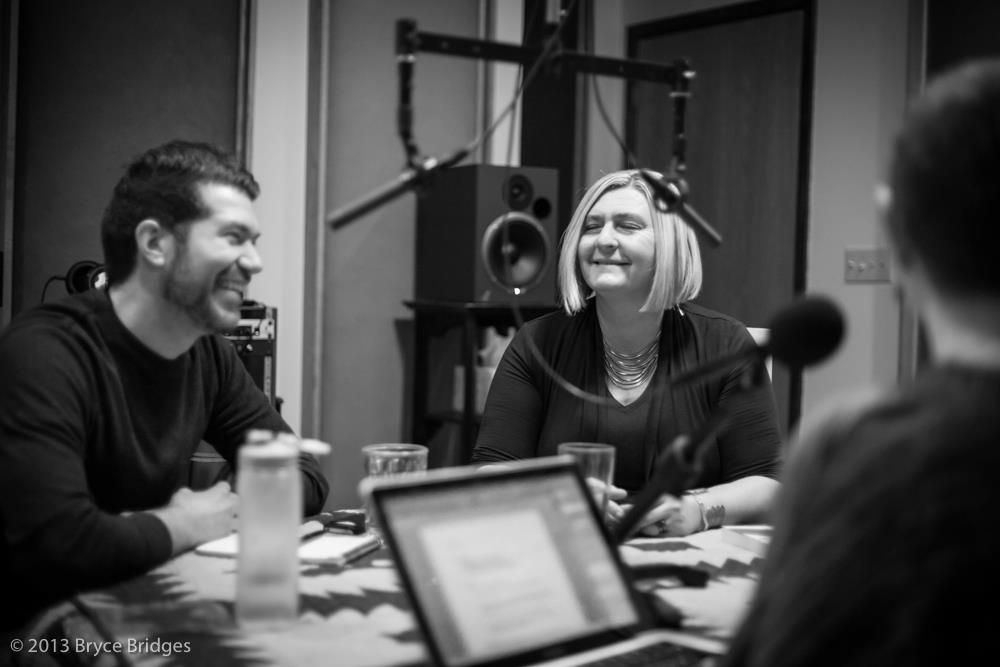
February 20th, 2019 → 4:25 pm @ rldonovan
Q. From teaching at high school, to moving into advertising and taking up senior roles in management, to finally purchasing Bozell. How has this contributed to your writing career?
Whatever gene made me want to teach English also made me want to write a novel. Moving into advertising gave me fertile ground for humor. We are an emotive group in advertising – not behavior often seen in corporate America. In fact, one of the editors on my first book commented that two of my characters were “not believable.” Honey, they are real people – that shows you how much academia knows about real life.
Going from an entry level position in advertising to an owner level has challenged and shaped my thinking from a variety of different vantage points within agency life. It has also refined my sense of humor and my ability to laugh at myself. Without that, it would not be possible to write humor that still enables my protagonist to be likeable.
Q. Why did you chose to write murder mysteries? Tell us a bit about all three of your books.
My Mom was addicted to anything Sherlock Holmes or Agatha Christie. Gore-free murder was my early comfort zone – its where we all gathered to have fun. When my publisher asked about my passion – I said comedy. But then I had to decide the topic of the comedy – and murder just came naturally.
Donna Leigh is the protagonist of all three. She is a menopausal ad agency owner in Omaha, NE. Donna originated from New Jersey – so she has a healthy suspicion of pretty much everything. She lived in Connecticut from her teen years into her early 40’s when she was recruited out to Omaha.
In the first book, a former colleague, one Donna disliked immensely is murdered, and she fears being high up on the suspect list so is anxious to get this murder solved.
The second book is about a former colleague from Connecticut, who moved to Omaha and was telling people she did so in order to go into business with Donna. This makes Donna even more nervous than the first book’s victim. She knows her perceived close proximity to this victim could make things go horribly wrong.
And in the third book, her good friend and client, Ed the winemaker is killed. She is angry and wants justice for Ed’s wife and daughter so she proceeds to dive into conversations with winemakers who have possible nefarious dealings.
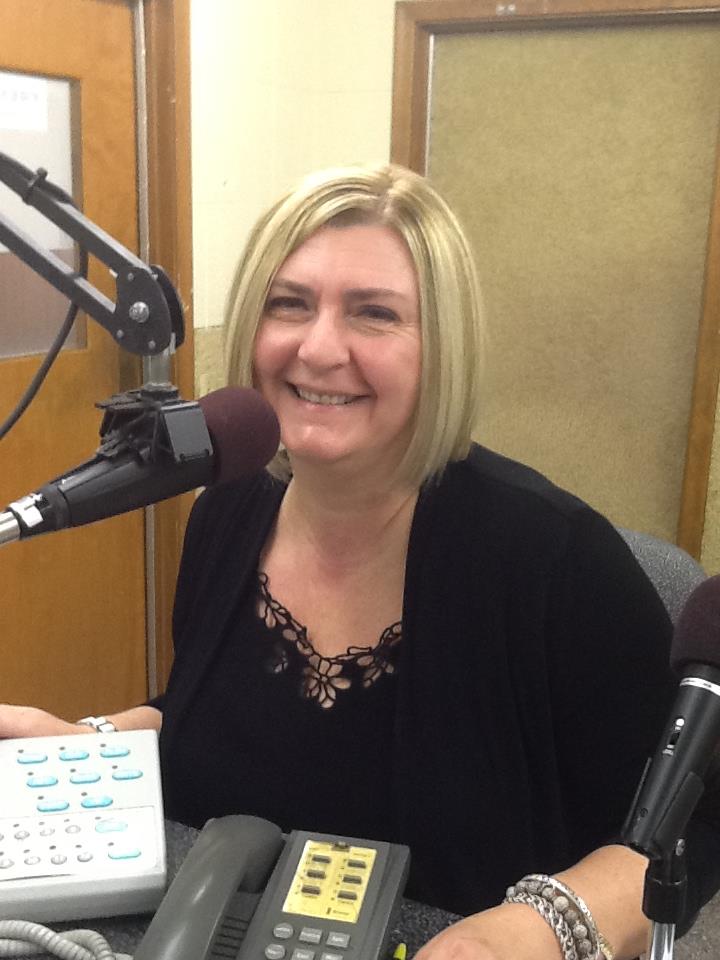
Q. How are your murder mysteries different from others?
They are murder mysteries with a dose of both sophisticated and slapstick humor. My characters are either extremely relatable or extremely bizarre – all of whom exist in my world of advertising. The relatable ones carry the plot and the bizarre ones ad to the humor immensely, but they’re real bizarre people, not fabricated bizarre people. It’s easy to fabricate crazy, but trying to capture the real thing is a lot tougher to do.
A lot of cozies don’t focus on the mystery but mine do. It is always a disappointment to me when I read any murder and find that loose ends and red herrings are popping up everywhere.
Q. Tell us about the main protagonist Donna Leigh, her character and her life in general.
People always ask me if I’m Donna Leigh. We are both menopausal women who own ad agencies in Omaha, so kind of. Donna is relatable. She doesn’t take herself too seriously, and while she has an ego, it’s not quite as overblown as some of the other characters she depicts. Donna has an outrageously narcissistic former colleague, Clovis Cordoba Seville, who act as her alter ego and never misses an opportunity to point out that Donna is both inferior and egotistical. With friends like that…
Donna has a wonderful and supportive husband who is also a gourmet cook and can solve pretty much any mystery, and she has three darling bulldogs.
Q. Your book “Is It Still Murder Even If She Was A Bitch” revolves around the murder of Donna Leigh’s former colleague. Knowing that she might be put on the suspect list, she herself steps in investigation. What all does she do?
She sticks her nose into police business and tries to help them uncover clues that will definitively point toward other suspects because her knowledge of tv detectives tells her she’s likely to be high up on that list. She continues to worry about that even when the lead detective assures her she’s not on the list at all. That’s the New Jersey paranoia coming out in her – not overly trusting of pretty much anything.
Donna enlists her friends and colleagues to gather information that will help solve the murder. Their antics draw much unwanted attention and along the way the killer gets wind of her involvement which ratchets the paranoia up to a much higher level.
Q. In your second book, “I Didn’t Kill Her But That May Have Been Short Sighted”, another colleague of Donna Leigh gets murdered. How does she handle it this time and how is it different from book one?
This time the murder victim has taken extreme action prior to her murder that could absolutely indict Donna, so the paranoia is warranted. It begins to appear as though Donna has been set up by the victim. This time, Donna even flies back to Connecticut where she worked with the victim years before and talks to a number of her former colleagues to try to build an accurate picture of the victim’s mindset. A picture emerges of a seriously disturbed individual. As we work our way through the book, we see that Donna’s nervousness is multi-layered. Naturally, she doesn’t want to go to jail for murder, but she is also concerned about lies spread by the victim and how they make her look to friends and colleagues in the Omaha and Connecticut advertising communities.

Q. In “I Don’t Know Why They Killed Him He Wasn’t Really That Annoying”, Donna’s close friend gets murdered. Tell us about the course of action she takes this time.
This time Donna is genuinely upset about the victim, and not just about keeping herself off the suspect list. In fact, she is never even close to being on the suspect list in this third novel. Because the victim is immersed in the wine industry, and has something of a reputation for sleuthing within that industry – Donna suspects there is a connection between his sleuthing and his murder, so she must educate herself on the people in the world of wine making and selling, some of whom are darker and more sinister than anyone she’s known previously. Although in each book it is clear that Donna has some knowledge of wine – the internal workings of the wine industry itself is still a huge mystery for her. Be prepared for a bit of a twist at the end.
Q. Do you want to share a few of your favorite lines from any of your books or tell your readers about any memorable or peculiar events inside or related to them?
There is a line from my first book that always makes me smile. It is a comment by Donna about the alarmingly narcissistic Clovis: “For the life of me I can’t imagine any way of getting more attention other than to be the actual murder victim. Sure, you’d have to be dead – small price to pay for that kind of attention in Clovis’ world.”
And another Clovis motivated comment “before she could answer I hopped back into my car and moved it to a proper parking spot. Then I jumped out to commit murder.” and slightly further on “As she watched my facial contortions it finally dawned on Clovis that she could potentially be in line for some grave bodily harm.”
Q. From all the books that you have written, which one is the closest to your heart?
After my first book I would have said no other body of work could ever be that important to me. I was wrong. These three books are my babies, I adore different aspects of each, but I could not choose a favorite. Others try and it offends me just a bit as it would with any doting mama. What do you mean you like my second book better than my first? What’s wrong with my first?
Q. What are some of the challenges in writing a humorous murder mystery?
The ability to balance humor with something as horrific as murder is a challenge. If you fall too far into the dark abyss there’s not enough humor to make it work, yet if you become too glib you risk making important characters unlikeable because they come across as unfeeling. You must show respect for the victim and their family, but find places where humor is not offensive. This was particularly challenging in my third book, where I killed a good friend. I wrote almost half of the book and let it sit untouched for over a year to edit and proof book 2. When I went back and read what I had written it was god awful. I wasn’t even sure I could save it. It was a boring and repetitive sequence of Donna’s sympathetic babble for the victim’s wife and daughter. So sappy. There was nothing funny about it and it droned on and on.
I pondered over this problem for weeks and suddenly an idea for an ending popped up in my head. It was not an ending that would have been applicable when the first half of the book was written At that point I actually sat down and wrote the ending. Then I went back and reworked and tightened the entire first half. After that the second half of the book virtually speed wrote itself. I had been worried about tying the first half with the ending – but it all just came together nicely.
One thing that is incredibly challenging in a comedy is to let the humor reveal itself – and not be too obvious about telling the reader what to look for, i.e. don’t over explain or you kill the humor.
Q. What makes you crazy about other murder mysteries that you would never do in yours?
If you’ve ever seen the movie Murder By Death, you’ll have a good idea of the bulk of my pet peeves in regard to murder mysteries. Introducing characters in the last few chapters, not tying up loose ends, giving clues that are more red herrings than clues. But that’s not all, I am tired of reading about a protagonist who is: drop dead gorgeous, young, brilliant and the most successful person in her field, but is dumb enough to make an appointment with the killer in a back alley with no back up. Then there are the cozies where the sleuth is a woman and the male detective tells her 400 times that she is impeding the investigation and should back off. I often wonder if these authors get paid by the word.
For some reason, to a remarkably large percent in cozy mysteries, the protagonist is in a restaurant, orders a large meal and completely loses her appetite when someone makes a comment – so the whole meal goes to waste – why? I don’t understand this oft repeated occurrence – there must be something they know that I don’t – there’s that paranoia again. I work very hard to ensure that none of these annoyances occur in my mysteries.
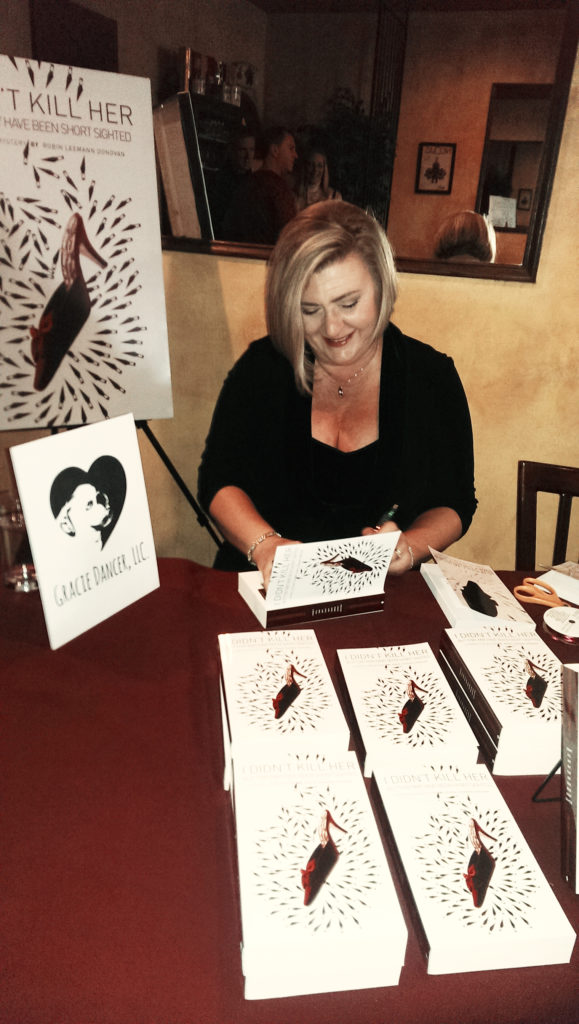
Q. Did you incorporate any life messages? If so, what are they? Did you add them deliberately?
When I started writing my first novel I had no conscious intention of incorporating any life messages into my work. As I began writing, I realized that a message about business ethics was emerging. In addition to that, there was a clear message that a woman who is not stick thin or 20-something can still be the most attractive, even the hottest woman in the room. I thought that was a much needed message, but in my very first speaking engagement, a woman with a long flowing skirt, a tie-dyed blouse and long flowing but completely gray/white hair wearing not a stitch of make-up lost no time in telling me how shallow and vain I must be. Touche. I thought I’d stuck up for those women who are born with imperfections yet make the most of their appearance and she taught me that caring at all about appearance is not cool.
I did tell her that I envied her ability to feel perfectly adequate with only the gifts given to her by Mother Nature. Clearly, I am more shallow than that.
Q. What were some of the difficulties you had to overcome in writing your mysteries?
After beginning my first mystery I realized that without a process I would never be able to complete it. Once I developed that process, my first book practically wrote itself. It must have been in there waiting to come out. Because there are several comedic events throughout my books, the challenges came in keeping the rest of the series from becoming formulaic and avoiding copying prior comedic events too closely. That’s part of the reason why a part of book 2 takes place in Connecticut and not just Omaha, because it forced me to push out of the temptation to let formulaic writing make life so much easier. In my third book, the focus is on the wine industry more than the advertising industry – again breaking out of that formula. That book required a lot more research than the first two.
Q. Did you outline the whole book before you began writing?
Not at all. The writing took me on a journey and I had no idea where it would end. That was for the first two books. The third was very different. But still no outline. It is critical that I keep tight notes on what happens in each chapter as I progress through the book. I have to be able to go back and think “you can’t use the knife in Chapter 26 that was thrown into the ocean in Chapter 6.”
Q. You have been very active in working towards certain social causes. Tell us about them.
My grandmother had dementia and she lived with us for six years. No one ever used the term Alzheimer’s back then. I learned that a completely different way of behaving was necessary for survival. Years later my mother-in-law was diagnosed with early onset Alzheimer’s. There was so little we could do to help her – helping the association was at least something. I had no idea how pervasive the disease was, and how underfunded, until I sat on their board. I was on that board for 6 years. During that time the funding for Alzheimer’s – and all dementia increased dramatically. Legislators are finally starting to release the danger it poses to society and to the healthcare industry. In addition my husband is a community educator for Alzheimer’s. Unfortunately, he is able to draw from personal experience in his lectures. Br>I started my career as a high school English teacher – so I have always been drawn to helping children. Over the years, my husband and I have hosted a number of students from France who wanted to spend time in the U.S. to improve their English speaking skills.
Now I work on cancer, wellness and helping others get jobs. There are so many important causes that need champions.
Q. What makes them so close to your heart?
Each cause, from the children’s museum to helping those in need of work is so critical and in desperate need of support. While Alzheimer’s is certainly personal for me, each and every one of these causes becomes personal when you start to hear the stories of the people involved. And the founders of my ad agency have always believed that “you must pay rent for the space you occupy on this earth.” We take that statement very seriously.
Q. When you sit to write a new book, what is the thought process that goes on in your mind and what motivates you to bring it out for the world to read?
When I sit down to write a new book I usually just have some vague notions of what might be included. The writing process for me is like a magical journey, it just flows. If I sit and write for eight hours I am constantly amazed at how I am typing the end of a thought, and the next thought just pops into my head so I don’t even have to take a short break to think it through – my fingers fly over that keyboard. Naturally, there are times when I deliberately take a break to think through what I’ve just written and make sure it tracks with where I’ve been, i.e. not using the knife in one of the final chapters that you discarded in an earlier chapter. Or don’t call Bob, George. Sometimes I have to make minor tweaks, but not as often as you’d think.
Q. How did your writing journey begin?
When I was a kid people still wrote letters. I probably wrote more than most kids. I was constantly getting feedback from friends and relatives that they loved my letters and I could always make them feel better; I could make them laugh. That was music to my ears. With a love of writing and a love of literature I became an English teacher. From early on I knew I wanted to write a book, but I kept putting it off because I didn’t have time – at least that was my excuse.
Years later, when I owned an ad agency and was doing a great deal of blogging (I wrote my blog Menologues for years and it had been picked up by Vibrant Nation and Alltop) and my ad agency picked up a publisher for a client – I knew it was the perfect storm. Now or never, I had the resources I needed to design, edit, maybe even publish. There was even a bit of a built-in audience, so I jumped in with both feet.
Q. Do you remember the first story or poem you ever wrote? Tell us about it.
I was about 6 and the bible school I attended asked me to tell one of the renowned bible stories on stage on parents’ night. I wrote out my version and practiced and practiced. I was applauded generously after my recitation. To this day I am not sure if I actually told a cogent story or if I stood up there and said “blah, blah, blah.” I knew my knees were knocking like a jackhammer so maybe their accolades were over my ability to remain stranding. Sometimes stage fright takes over and gives you wings – and sometimes you just babble like an idiot.
Q. Tell us about some interesting or memorable incidents from your life.
Buying my ad agency back from a publicly held parent company was one of the most incredible experiences of my life. In thinking back I would have to say there was more intrigue and covert behavior than an average James Bond movie. It was an exciting time, but it was more terrifying than exiting. A group of executives were individually brought into a room and coerced into signing nondisclosure papers for Operation Omega, without even knowing what was about to happen – that they were going to offer us the opportunity to buy one of their profit centers. We hired an industry consultant and spent about six months meeting and making offers that were refused one after the other, all the while still working our full time day jobs while the rest of our staff lived in ignorant fear of what would happen, I still think it would make a great movie.
Q. Talk to us about your growing years and your home. How did all this influence your writing?
My family believed in enjoying life, fun. They taught me that working hard was your path to being able to play hard – and they did. That could be positively magical, but sometimes it went too far. My parents liked to party, so I grew up fast. I could see the value of working hard to play hard, but sometimes the responsibility of dealing with their afterparties was pretty sobering. I like to think I took the fun loving spirit and balanced it with a more responsible overall outlook. My husband has been extremely instrumental in helping me find that balance – he came from a family that espoused life as a series of responsibilities and obligations. Together I like to think we’ve merged the best of both of our backgrounds.
Every different behavior pattern that I observed has been fodder for the mill.

Q. What other books are you currently writing and what stage are they at?
My fourth book in the Donna Leigh series is bouncing around in my head. I have a title and I know where in Donna’s life the victim comes from, but that’s about it. As eager as I am to start writing, I am trying to spend my spare time doing author interviews in order to help promote the existing series of three before committing to a fourth. As much as I enjoy the writing, the editing, proofing, cover design and formatting are a formidable amount of work. That’s the hard part. And then there’s the marketing – a ton more hard work – sometimes really fun – but always fairly grueling when you’re also trying to run a company.
I have had several folks suggest that I turn my blog, Menologues into a book. That could happen some day – it’s written – it just needs organizing and some editing.
Q. What is your writing process, a typical writing day routine?
Most of my writing is done on Saturday and Sunday. I try to devote eight hours on each of those days. I pull out my laptop, find a comfortable spot and just go. In the winter I am usually on the couch surrounded by my dogs and in the summer I love writing on the deck. There’s nothing better than the five o’clock glass of wine while you’re wrapping up your day of writing. Eight hours goes by like 45 minutes.
Q. What book marketing techniques have been the most effective for you?
None have been as effective as I’d like, but I’d have to say the personal appearances at libraries, book stores and launch parties, followed by book clubs (whether or not I’m there – sometimes I phone in if it’s a club too far in distance) and Amazon free copies (they provide these copies to their prime audience – but I still get paid a bit).
I once spoke at a tri-state library conference. I assumed some of the libraries might pick up my book, but I was shocked that so many of the librarians bought the book for themselves. That was a lovely surprise.
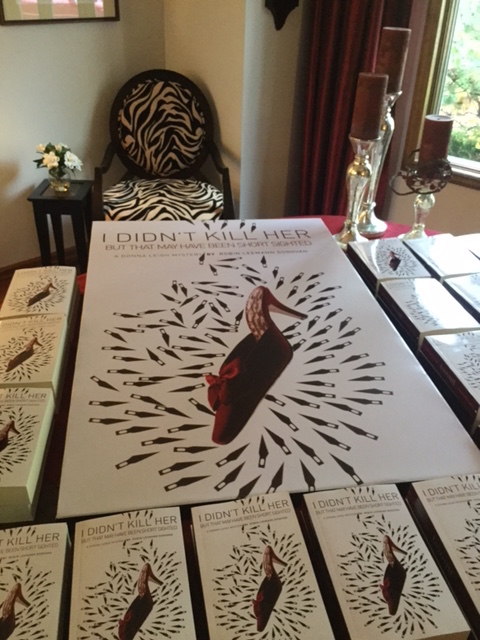
Q. What do you think makes a book sell, or makes a reader buy it?
Unfortunately the biggest motivator is celebrity – and ironically they are often not the best written books. I know, in my case, a lot of folks like my titles and a lot are thrilled at getting to meet an author – even if it’s one they’ve never heard of before. That romance of being a “published author” will often make you appear to be a celebrity to some readers – no matter how humbly you deny it.
Q. What’s the most moving or affecting thing a reader has said to you?
One of my editors is an extremely talented copywriter and is known for her smart-mouth and critical tongue. She stalled getting started on reading my book. I suspected she dreaded having to tell me it wasn’t great and I was tempted to take it back from her, but I waited impatiently. After finishing the book she wrote me a lovely note. She shared that she was stunned at how much she genuinely enjoyed reading it – and she was humbled by my ability to create something of this magnitude. That note is still sitting on my desk.
Another favorite comment was by a publishing agent after hearing me speak at a library. She commented that she had never laughed so hard at a book reading, and she had been to a million of them.
Q. What are your favourite three books, and why?
Eloise at Christmastime. Kay Thompson’s poignant children’s story. Eloise came from a privileged background and had great “things” but didn’t have the loving care of her parents that every child craves. Eloise is a free spirit that turns a luxury hotel on its ear as she lunges forward creating her own adventures despite the lack of loving support she wants most of all.
Pride and Prejudice. Jane Austen proves that women can be extremely intelligent and can, to a large extent, manipulate many life outcomes even living in a society where men prevail and women fall somewhere down on the list below favorite horse, favorite dog and favorite drinking buddy (not that there’s anything wrong with loving your pets). That was a long time ago – and Elisabeth is still a role model who would serve any girl well to emulate.
Rebecca. Daphne de Maurier shows that a huge lack of self-confidence can completely alter how a person views their own situation, which in turn, absolutely drives their behavior. The author shows a timid woman dealing with a woman she believes to be flawless and unassailable and who turned out to be evil incarnate. In an instant of understanding that, the protagonist’s entire world changes dramatically and she gains the strength she could not find earlier.
Q. Who are your favourite three authors and what do you like the most about them?
Jane Austin and Charles Dickens, because they prove that sophisticated humor existed hundreds of years ago. James Thurber because of his elegance and ease in handling humor. From an early age I really enjoyed Cornelia Otis Skinner and her brand of humor.
Q. What all interests you apart from writing?
My bulldogs, reading, skiing, dancing, wine tasting and watching murder mysteries.
Q. Tell us about your publishing journey and how easy (or difficult) was it to get all your books published?
I was extremely fortunate. As an ad agency owner, I was lucky enough to get a publisher as a client. I approached them with the book I had written about buying my company. I was worried that it would get me sued. He didn’t think it would be an issue, but I demurred. He agreed to show his attorney and came back a week later to say “my attorney wants to know, are many of these people dead yet?” They weren’t – so that book was shelved. But this publisher told me to write my passion and then show it to him, I learned so much from them. They had just finished editing my second book when they were sold to a company down south. I tried the new owners with my first book for a year – but didn’t like their culture. With what I learned from my first publisher, I am able to publish and republish my books independently.
Q. What challenges do you think are faced by writers, what’s the worst thing about the book industry according to you?
The worst thing about the book industry is that some of the most talented writers are some of the most ignored and some of the least talented writers are some of the most acclaimed. Popularity of an author’s work is first and foremost based on their celebrity, or their notoriety – and the actual work is somewhere down on the list of importance.
Q. What message do you want to share with budding writers?
Manage your expectations. It is an awesome and rewarding journey if you don’t let your expectations of grandeur get in the way. Write because you enjoy the writing, not to achieve fame or wealth, because you can be absolutely gifted and still never achieve either. But you can derive enormous satisfaction from having someone tell you they read your book and enjoyed it.
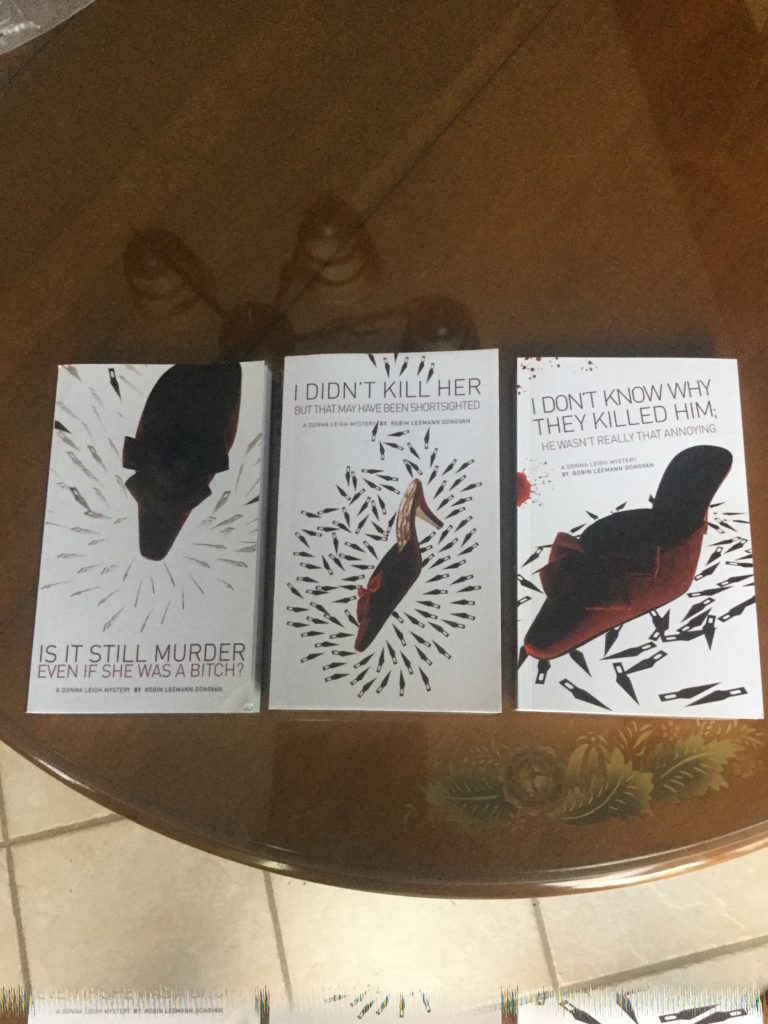
Q. From teaching at high school, to moving into advertising and taking up senior roles in management, to finally purchasing Bozell. How has this contributed to your writing career?
Whatever gene made me want to teach English also made me want to write a novel. Moving into advertising gave me fertile ground for humor. We are an emotive group in advertising – not behavior often seen in corporate America. In fact, one of the editors on my first book commented that two of my characters were “not believable.” Honey, they are real people – that shows you how much academia knows about real life.

February 4th, 2019 → 9:34 pm @ rldonovan
My goals in my first book: Is It Still Murder Even If She Was A Bitch? grew in number as the writing progressed. I wanted to show that menopausal women can be cool and that female amateur sleuths don’t have to be 20-something, stunningly gorgeous and brilliant (but end up doing really stupid things like meeting the murderer with no weapon and no back up in a dark alley). Female sleuths don’t have to be either 20-something or Miss Marple with nothing in between. My sleuth, Donna Leigh, is menopausal, attractive but not perfect and smart but not flawless.
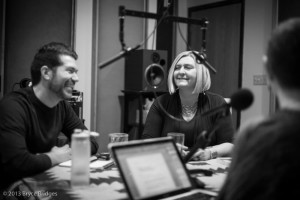
I wanted to clearly avoid my most common pet peeves,
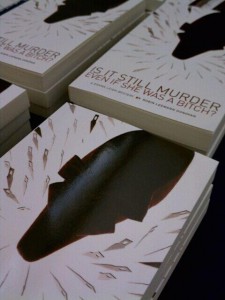
Bookdisplay
the ones repeated throughout cozy mysteries that I read, e.g. men are always telling female sleuths “I am angry, you need to stay out of this investigation.” This rant is generally repeated ad nauseum throughout the plot. The female sleuth typically ignores this command, yet often frets that she’s making the macho guy mad with every move she makes. I’m sick to death of this and I’m guessing others are as well.
I wanted to show that the most appealing woman doesn’t have to be the thinnest – that women can be spectacular, desirable and stylish at any weight.
I also wanted to show that comedy doesn’t have to detract from the mystery in a murder mystery. If the author is careful not to leave a trail of red herrings and is diligent in answering every question in an interesting and compelling way, a comedy can be every bit as suspenseful a drama.
Have I met these goals? Feedback from readers tells me I have – maybe not every goal with every reader – but enough to know it’s all in there.
www.bozell.com
January 15th, 2019 → 10:52 pm @ rldonovan
I would have to say that I had five writing style influences, and try as I might, I cannot eliminate any of them.

Donna Leigh Mysteries
In my early years it was Cornelia Otis Skinner, Jane Austen and Charles Dickens. Their droll approach at humor never failed to amuse and entertain me. As dark as some of their topics were, their depictions of characters and how they behaved would often have me laughing out loud.

Bookdisplay
By the time I reached high school, I had added James Thurber to the mix. The Night the Bed Fell on Grandpa felt as though it had happened in my life, and in fact, that type of event was not uncommon as I grew up. I frequently wrote letters and then emails to family and acquaintances using these four icons to help guide my style.
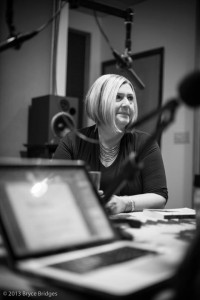
Sharing ideas
Humor was what kept our family together, and humor is in my veins. I guess writing humorous novels was inevitable.
As I prepared to write my first novel, Janet Evanovich joined the ranks of influences. The grace and ease with which she is able to move from serious issues to hilarious occurrences is something I wanted to emulate. I actually studied the components of her work to form a pattern for my own. Enough humor, but not so much that it destroys the balance of the plot.
www.bozell.com
January 7th, 2019 → 3:56 pm @ rldonovan
I would like to write my fourth book in the Donna Leigh Mystery series. Instead I will focus on writing every guest blog post, guest column, author interview and any other means of getting exposure for the first three books in the series. If offers aren’t forthcoming, I will reach out in writing and offer my services.
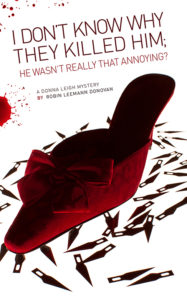
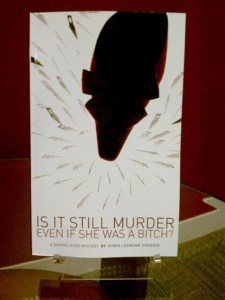
Luckily, I enjoy interviews and blogging as well as the writing of the actual novels, but let’s face it, the novels are more fun. Right now I am honoring my pragmatic side and trying to build some steady sales for the series before putting my concentration into creation.
In order to ensure that I doggedly pursue this goal, I keep reminding myself that it doesn’t really matter when that fourth book is released if the readers will be few and far between. In the meantime, I’m capturing notes on the details of book four as they occur to me. Starting that writing process will be my reward if I see enough progress in sales. if I’m being honest – there will never be enough sales, but a noticeable uptick would be enough to get me writing again!

www.bozell.com
January 2nd, 2019 → 5:30 pm @ rldonovan
When I first decided to write a book, I selected a painful topic, the story of how three colleagues and I bought an ad agency back from a major international holding company. It was a fascinating time. We were assaulted by all around us, the executives selling the company, the other potential buyers, the colleagues who opted not to be involved in the purchase and the staff who desperately wanted details we were not legally permitted to share.


I didn’t get very far in writing this book for two reasons, a nagging fear that I would get sued by one or more of these miscreants, and the fact that every sentence was painful to write – it was not a joyful time.
When I asked my future publisher if he thought I would get sued, he said probably not, but he agreed to show his attorney. About a week later he came to me with a question “My attorney wants to know, are many of these people dead yet?” Answer “Not enough!”
That publisher suggested I backburner the book, but he also asked me what was my passion. I told him comedy. He suggested I write my comedy and send it to him. In a blink, I had the first three chapters of Is It Still Murder Even If She Was A Bitch? I forwarded it to him for an opinion, and the rest is history.
What took me completely by surprise was how much fun I had writing. After my first attempt at what would undoubtedly have been a drama I expected to be suffering and hating every session with my reward being the final result, assuming I made it to the finish line.
What I found instead was that the writing itself was a sheer delight. I would wake up on a Saturday and start writing at 8 a.m., working practically non-stop through the evening cocktail hour. Then I’d wake up Sunday and do the same all over again. I couldn’t wait for my fingers to hit the keyboard. And when the manuscript came back after each edit, I swore at one or two irritating comments and then I got down to business and happily wrote again. I loved comments like “you’re in a restaurant but I don’t know what it looks like,” because that gave me license to write some more. It was not only fun, it was improving my masterpiece.
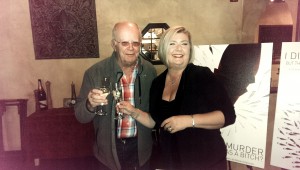
After the pain of that first failed attempt I never expected that the writing could possibly be this much fun. Now, if I should ever get the guts to go back and finish that first book, I think it would make one hell of an action-packed movie.
December 17th, 2018 → 4:16 pm @ rldonovan
I killed a woman in each of my first two books. They were intimate and personal murders and the details revealed themselves easily.
No women were killed in my third book, only men. I won’t mention the number (you know, spoiler alert), but suffice it to say that there has been nothing personal and/or intimate about how I have murdered men.
It’s not something I’d ever thought about before answering this question, but the facts are undeniable. I kill women more elegantly than I kill men.

Sharing ideas
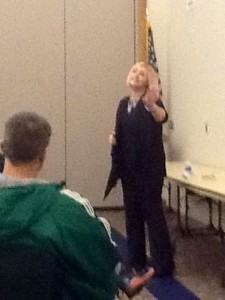
LaVista Author Talk
I’ve read about how men tend to murder in a more gruesome and personal way and women prefer a cleaner, poison-based crime. In examining my work, I would have to say that I’ve murdered women in a more gruesome, close up manner (none of which have not been graphically depicted because they are cozy mysteries) and the men in a more distant method with less explicit details that are abruptly glossed over.
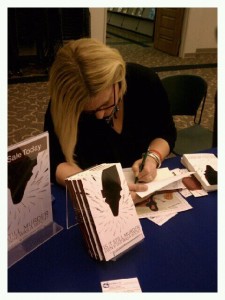
Get a jump on your Christmas shopping!
Why that is remains unclear to me, although as I unpeel the onion the women have been murdered for bad behavior in personal relationships, that caught up with them. My men, on the other hand, have been murdered for acts far more public than personal. This leads me to believe that I am may not be comfortable addressing men’s private feelings and related actions, so I build a layer of separation between their feelings and the motives for their murders.
Perhaps, it’s merely because my third book is my first experience with murdering a friend. Could it be as simple as that? Murdering a friend was definitely more difficult than murdering those hateful, shrewish women. It was a genuine challenge to find the right balance between expressions of grief and sadness without completely killing the humor.
When I review the question about the difficulties of writing for the opposite sex I have more questions than answers. Who would have guessed that with all my focus on writing mysteries, I am the real mystery?
December 10th, 2018 → 10:33 pm @ rldonovan
I usually write all day Saturday and Sunday when I’m working on a novel. I have a portable writing desk and I make myself comfortable on our sectional sofa surrounded by my ipad for thesaurus needs, coffee or diet soda and my three bulldogs and their various antics.
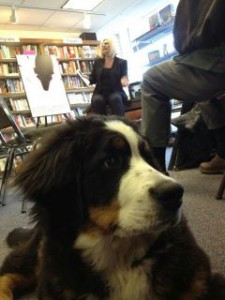
My favorite part of the day is when I can wind down a writing session with a glass of white wine. In the summer I take it out onto the deck and breath in all the beauties of the outdoors. In the winter, I get the fire going and watch nature through large windows and skylights. It’s almost as though my diligence during the day has earned me the right to relax and enjoy nature – and wine.


Sharing ideas
Much of my first novel was written on a ski trip to Utah. After a day of skiing, I would sit in front of a fourteen-foot high window in our rental house, drinking white wine, gazing at the mountains and waiting for deer to pass by. It was amazing how much work I was able to get done in an hour or two each afternoon.
Conversely, when editing, I sit rigidly at the desk in my home office and plow through chapter after chapter. Even those areas that require a fair amount of writing do not get me to budge from my dedicated station. And I don’t look out the windows located behind me,
While writing or editing, I constantly save my work. I save two copies to a flash drive and two copies to my desktop. Whenever I get up to go to the bathroom, take a phone call, grab a bite or get out of the way of a determined bulldog – I save my file four times, sometimes eight when I want to double check. Hmmm, I guess I’m quirkier than I thought.